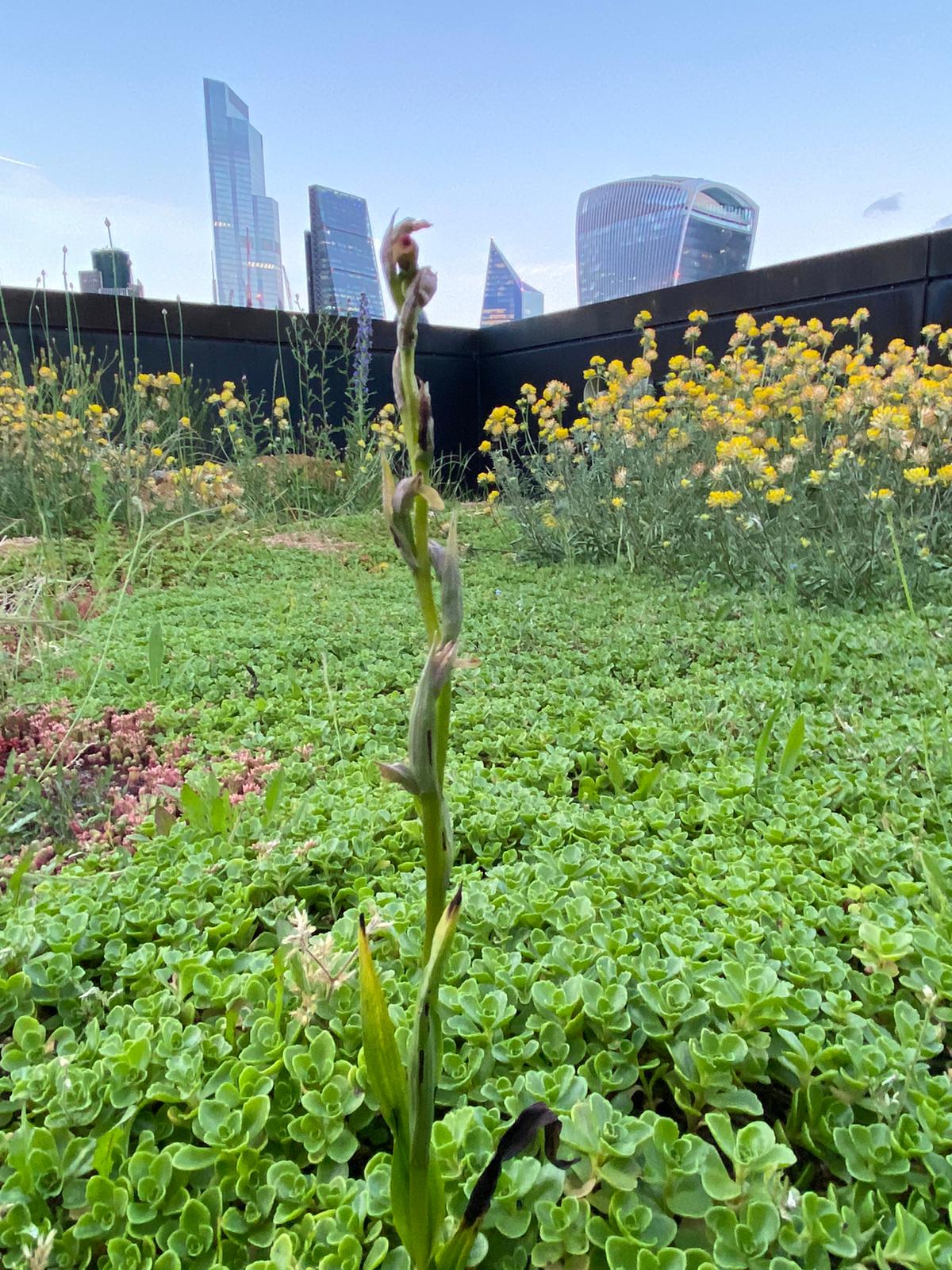Orchid thought to be extinct in UK discovered on rooftop of London bank
The small-flowered tongue-orchid has not been recorded in the UK since 1989

Your support helps us to tell the story
From reproductive rights to climate change to Big Tech, The Independent is on the ground when the story is developing. Whether it's investigating the financials of Elon Musk's pro-Trump PAC or producing our latest documentary, 'The A Word', which shines a light on the American women fighting for reproductive rights, we know how important it is to parse out the facts from the messaging.
At such a critical moment in US history, we need reporters on the ground. Your donation allows us to keep sending journalists to speak to both sides of the story.
The Independent is trusted by Americans across the entire political spectrum. And unlike many other quality news outlets, we choose not to lock Americans out of our reporting and analysis with paywalls. We believe quality journalism should be available to everyone, paid for by those who can afford it.
Your support makes all the difference.An orchid thought to be extinct in the UK has been discovered growing on the rooftop of an 11-storey London bank.
The small-flowered tongue-orchid has not been sighted in the UK since 1989, when a colony was found in Rame Head in Cornwall.
The Cornish colony was destroyed through land mismanagement in 2009, leading to the assumption that the flower had gone locally extinct in the UK.
The new discovery of 15 of the plants on the rooftop garden of Nomura, a Japanese bank, now represents the entire known wild UK population of the species.
Serapias parviflora is commonly found in the Mediterranean Basin and the Atlantic coast of France, Spain and Portugal.
The London colony was discovered on 4 June by ecologist Mark Patterson, who manages the bank’s rooftop garden.

“I was on the roof doing my monthly vegetation surveys and instantly knew it was orchid but wasn’t sure what group it belonged to, so I took lots of photographs and went home to look at my reference materials – and then I realised what it was,” he told The Independent.
“The next step was to consult some botanists because whenever you think you’ve found something rare, it usually turns out to be something common. But then I got confirmation that it was what I thought it was and things got quite exciting.”
It is not known how the orchids arrived on the roof of the building, but it is possible that the flowers’ seeds hitched a ride on winds blowing over from Europe, said Mr Patterson.
“Orchid seeds are incredibly small and they’re very well adapted to travel on wind – one million orchid seeds weighs about the same as a paperclip,” he said.
“The plants could have originated on the continent and been brought over the channel on southerly winds which frequently bring Saharan dust deposits to the capital.”
Another theory is the seeds of the plant could have been brought to the roof inside the soil used to establish the garden more than a decade ago, according to Mr Patterson. The plants can take several years to reach maturity, which might be why they have only just begun to bloom, said Mr Patterson.
He added that there was still debate among botanists about whether the species first arrived in the UK naturally by riding on winds or whether it was accidentally introduced by humans. The plant is not considered to be an invasive species because it poses no risk to British wildlife.
Nomura’s sun-drenched rooftop garden, which hosts 159 species of plants and 17 bees, provides the ideal conditions for the rare orchid, he said.
“Tongue-orchids particularly like hot and dry conditions because it is a Mediterranean plant,” said Mr Patterson.
“Orchids are also highly sought after and, in the wild, regularly dug up and stolen by illegal plant collectors.
“If they had been found at ground level, they may have all been dug up already. But because they’re on roof of a secure bank, they’re well protected.”
He added that the UK should expect to see more arrivals of species from warmer climates as temperatures continue to rise.
“Species are moving northwards as the climate changes,” he said. “Often it’s things that are highly mobile, such as winged insects and orchid seeds, that will arrive first.”
Commenting on the discovery, Mike Waller, an ecologist and author of Britain’s Orchids, said: “To find Britain’s second colony of small-flowered tongue-orchids is exciting in itself but to find them on a green roof in the City of London is extraordinary.
“This is clear evidence that with patience and dedication, even the most unlikely places can become havens for some of our rarest wildlife.”
Join our commenting forum
Join thought-provoking conversations, follow other Independent readers and see their replies
Comments